
Structure and dynamics of complex systems, such as society and living organisms, using massive datasets. Hierarchical & modular structure in social and biological networks, the analysis of metabolic networks, and the social media.
The Complex Networks & Systems track, with its unique interdisciplinary values, offers a training opportunity to explore the connections among theoretical, technological, biological, and social implications of complex systems in a diverse and multidisciplinary research-oriented curriculum. The study of complex systems is focused on discovering and understanding how the myriad parts of a system—which could be the Internet, the human brain, a language, a power grid, or an ecosystem—interact with each other and determine the macroscopic behavior of the system itself. This strongly interdisciplinary field has exciting implications for computer science, physics, math, biology, and cognitive and social sciences. Faculty at the associated Center for Complex Networks and Systems Research are investigating complex systems in action, from determining how a particular YouTube video suddenly goes viral to developing models that can accurately predict the spread of contagious diseases.
The program also capitalizes on the new Indiana University Network Science Institute with over 150 faculty members who participate in network science and complex systems research and who can serve in interdisciplinary Ph.D. advisory committees. Indeed, the breadth and strength of research in network science and complex systems already pursued at Indiana University is unmatched by other academic programs. Our students come from around the world and have a variety of educational backgrounds. What they share is a desire to widen their theoretical, computational, and technical skills—and, from the earliest days of the program, to engage in research projects ranging from Web mining to modeling biochemical regulation. Our students have graduated to join some of the best academic, government and research and development centers in the World, ranging from top universities to the most advanced technology companies.
Track Director: Filippo Radicchi

Structure and dynamics of complex systems, such as society and living organisms, using massive datasets. Hierarchical & modular structure in social and biological networks, the analysis of metabolic networks, and the social media.
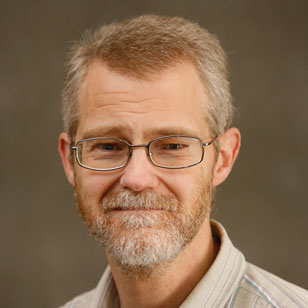
Cognitive science, computational and theoretical biology. Understanding how coordinated behavior arises from the dynamical interaction of an animal’s nervous system, its body and its environment. Evolution and analysis of dynamical “nervous systems” for model agents, neuromechanical modeling of animals, biologically-inspired robotics, and dynamical systems approaches to behavior and cognition.
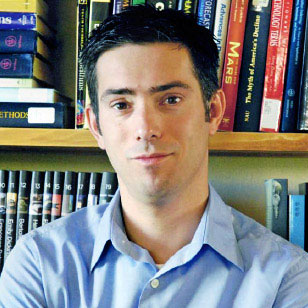
Computational social science, social media analytics, informetrics, and digital libraries. Meme diffusion, markets and sentiment, metrics from usage data, science of science.

Data-Driven Science of Science, Bibliometrics, Semantic Web, Data-Driven Knowledge Discovery, AI powered Drug Discovery, Knowledge Graph and Mining.
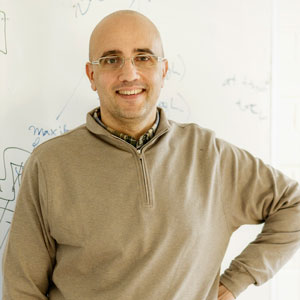
Statistical physics of social dynamics, Community structure in complex networks, Science of Science.
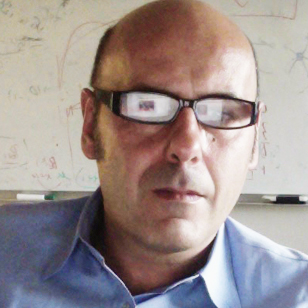
Information and Transportation Networks. City settlement activity, Information Creation and Consumption, Online Traffic, Protein Interaction Networks.

Neural basis of behavior, Embodied Cognition, Computational Neuroscience, Evolutionary Robotics, Artificial Life, Complex Systems.

Adjunct Professor
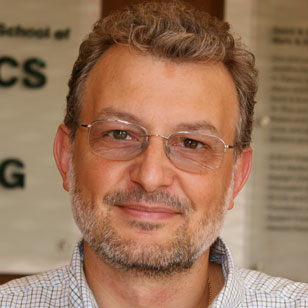
Web science, social media, social networks, social computing, Web search and data mining, distributed and intelligent Web applications, and modeling of complex information networks.
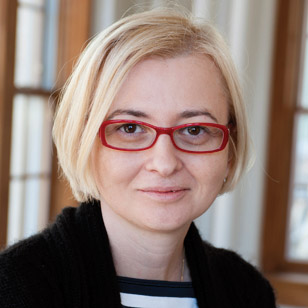
Dynamics of science as a social and an intellectual (cognitive), science, technology, and society (STS), science of science, information science, network science, economics, sociology, philosophy, history.

Complex systems, computational biology, artificial life, embodied cognition and bio-inspired computing, dynamics in complex networks, text and literature mining, evolutionary systems, adaptive search and recommendation, and biosemiotics.
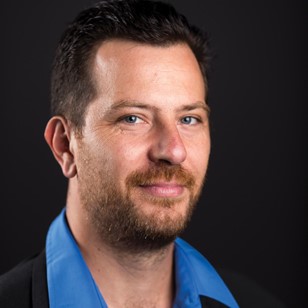
Complex Networks and Systems, Data Science, Science of Science, Sport Analytics.
A student must successfully complete ninety (90) credit hours of graduate-level course work. The specific track requirements are listed below.
Informatics Core Requirements (6 cr.)
Complex Systems & Networks Core Requirements (6 cr.)
Seminar Requirement (6 cr.)
Research Rotation Requirement (6 cr.)
A student must complete two rotations of I790. A third rotation will not count for course credit.
Theory and Methodology Requirement (12 cr.)
These courses must be appropriate for a Ph.D. in Informatics.
Minor (6-15 cr.)
A student must complete an internal or external minor approved by the University Graduate School and the School. If a student selects an individualized minor, prior to taking courses, the University Graduate School must approve the proposed minor course list. There is no typical minor; however, students in the Complex Systems & Networks track often pursue a minor in Biology, Computer Science, or Statistics.
Electives (12-30 cr.)
A student must have all electives approved by the student's advisor and the Director of Informatics Graduate Studies prior to enrolling in the course.
Thesis Reading and Research (minimum of 21 cr. and a maximum of 30 cr.)
All required courses provided by faculty in complex systems tracks, including I609 and I709, are open to and welcome students from other tracks and programs.
Note: This course is waved if students demonstrate familiarity with complex systems (e.g. M.S. in related field). It is taught every two years to guarantee sufficient quorum. It alternates with I585 which students can take instead of I601.
Nature is complex. Biological, social, economic, technological and information systems are all composed of many interacting agents giving rise to macroscopic complex features. Complexity science is the novel interdisciplinary research field devoted to the understanding of the roots of complex phenomenology observable in nature, and to developing a common theoretical framework able to explain the astonishing similarity between complex real systems of so different origin.
This course aims at providing an introduction to complex systems and networks. The course will touch several topics of traditional and current research in complexity science. Students will learn mathematical and statistical concepts of the science of complexity, and, by being exposed to a great deal of real examples, they will learn how to measure and characterize complex features in natural systems. These notions and analytic tools are increasingly in demand to approach complex problems in many different disciplines including biology, data and sport analytics, social science, informatics, neuroscience, and economics.
This course is taught once every two years alternating with I709, to obtain a sufficient quorum of students. Majority of students from Complex Systems track, but students from other tracks and programs frequently take this seminar.
A complex system is any system featuring a large number of interacting components (agents, processes, etc.) whose aggregate activity is nonlinear (not derivable from the summations of the activity of individual components) and typically exhibits hierarchical self-organization under selective pressures. This definition applies to systems from a wide array of scientific disciplines. Indeed, the sciences of complexity are necessarily based on interdisciplinary research. Almost all interesting processes in nature are highly cross linked. In many systems, however, we can distinguish a set of fundamental building blocks, which interact nonlinearly to form compound structures or functions with an identity that requires more explanatory devices than those used to explain the building blocks. This process of emergence of the need for new, complementary, modes of description is known as hierarchical self-organization, and systems that observe this characteristic are defined as complex. Examples of these systems are gene networks that direct developmental processes, immune networks that preserve the identity of organisms, social insect colonies, neural networks in the brain that produce intelligence and consciousness, ecological networks, social networks comprised of transportation, utilities, and telecommunication systems, as well as economies. The field of complex systems studies the general characteristics of all these systems. Its goal is to identify and model the laws and behaviors common to various classes of complex systems.
This seminar is designed to present and discuss the history, methodology and impact of complex systems; we cover key literature as well as recent advances in the field.
Students are expected to read and annotate the materials presented, as well as present several of the key readings. Students will also work on a term paper.
This course is taught once every two years alternating with I609, to obtain a sufficient quorum of students. Majority of students from Complex Systems track, but students from other tracks and programs frequently take this seminar.
Most Recent offering: https://yongyeol.com/courses/2013S-I709/
Complex systems are the systems that contain many sub-parts that interact with each other. Thanks to the structure and dynamics of interactions, fascinating and unpredictable phenomena emerge. Many natural and artificial systems that fascinate us (e.g. cells, brains, societies) are complex systems. Because complex systems exist all over the places, the study of complex systems is inherently interdisciplinary. In this course, we will try to find the answers to the following questions: What are the complex systems around us? What characterizes the complex systems approach? What are the fundamentals of complex systems approach? How has it been applied to other fields? What are the frontiers of the research? We will explore fascinating papers ranging from the fundamental theory to the various applications, along with individual research project.
Paper Review (20%): a short review of the papers is due by the midnight before the class
Paper Presentation: Assigned moderators make a brief (~ 5 minutes) presentation about the premises and the results of the paper.
Project proposal: A two to four page document that contains project title, motivation, relevant prior work, approach, plan, proposal presentation.
Proposal Presentation: 20 slides, 1–5 presentation.
Progress report: draft of the final paper, with preliminary results.
Final project paper (40%): full research paper (~10 pages) with all the details.
Final presentation (20%): 10 minute presentation.
Participation (20%)
Listed at: https://yongyeol.com/courses/2013S-I709/#schedule
Note: This course is waved if students demonstrate sufficient mathematical prior training (e.g. M.S. in related field). It is taught every two years to guarantee sufficient quorum.
Complexity deals with the structural, behavioral, and organizational properties that emerge from the unsupervised local interactions of a multitude of elementary units. During this courses we will study the mathematical and computational techniques that have been developed to describe and understand such properties. In doing so we will always discuss the math/algorithmic side in the context of specific examples; We will touch upon a number of important and fascinating sub-areas: linearity and non-linearity, chaos, self-similarity, stochastic processes, self-organization and network theory.
To provide students with a technical (mathematical, computational) background to describe, model and reason in quantitative terms about Complex Systems.
Students are required to simulate a number of “model-system”. Some (minimal) programming skills are therefore required. Some college-level background in calculus, probability and linear algebra is also required. If these requirements are not met, a preliminary conversation with the instructor is appreciated.
Part 0: The Art of Modeling
Part 1.A: Deterministic systems with few degrees of freedom
Continuous dynamical systems
• Linearization and stability
• Phase space and qualitative analysis
• Elements of bifurcation theory
The role of non-linearity
• Recurrence equations
• Bifurcation, period doubling – the case of the logistic map
• Routes to chaos
• Universality and the renormalization group
Part 1B: Randomness - the basic
Part 2: From microscopic to macroscopic
In addition to required courses, faculty in the track offer courses that provide more targeted training is specific areas.
Instructor: David Crandall
Written and oral examinations decided by program committee based on bibliography from I609, I709 and specific research interests of candidate. Typical written exam: three papers or one-week take home exam.
Cognitive Science, Statistics, Biophysics.
Abi-Haidar, Alaa | An Adaptive Document Classifier Inspired by T-cell Cross-regulation of the Immune System |
Mourao, Marcio | Reconstructing the Mechanisms and the Dynamical Behavior Complex Biochemical Pathways |
Conover, Michael | Digital Democracy: The Structure and Dynamics of Political Communication in a Large Scale Social Media Stream |
Frey, Seth | Complex Collective Dynamics in Human Higher-Level Reasoning: A Study Over Multiple Methods |
Kaur , Jasleen | Emergence of Innovation and Impact in Science |
Kolchinsky, Artemy | Measuring Scales: Integration and Modularity in Complex Systems |
Mao , Huina | Modeling Economic and Financial Behavior from Large-scale Datasets |
Shuai, Xin | Modeling Scholarly Communications Across Heterogeneous Corpra |
Simas, Tiago | Stochastic Models And Transitivity In Complex Networks |
Wang, Zhiping | Biomedical Literature Mining For Pharmacokinetics Numerical Parameter Collection |
Weng, Lilian | Information Diffusion on Online Social Networks |